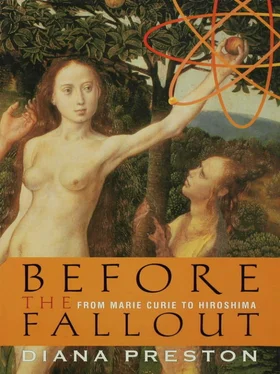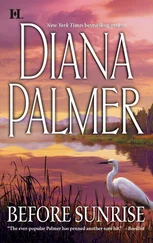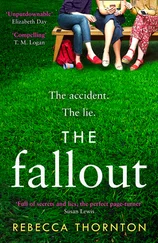A related and intriguing question is what if an experienced, eloquent, and charismatic British prime minister had tried to persuade a new American president, inexperienced in foreign affairs, to stay his hand rather than use the A-bomb as soon as it was available? Britain, as junior partner, had to give consent under the Quebec Agreement to the bomb’s use. It would have been difficult politically for the United States to go it alone. This did not happen and, given Churchill’s determined purpose and view7 that the Axis was “reaping the whirlwind,” was virtually inconceivable. Britain and America had come too far together and had too many joint interests to pursue. Churchill gave his consent and throughout his life stuck to the position that the bomb was necessary to save Allied lives, both British and American, despite having privately suggested to Truman at Potsdam that the Japanese should have been given clarification of the terms for unconditional surrender.
Another question is what if Churchill’s old ally, President Roosevelt, had lived a little longer? Would history have followed the same course? This question presupposes that Roosevelt’s health would not have deteriorated further. (Ill health made him less politically adroit at Yalta than at previous great-power meetings.) He was the architect, along with Churchill, of the unconditional surrender policy, designed to show that victory was unequivocal and to give the victors the paradoxical ability to impose democratic institutions. He had not been swayed by his meeting with Bohr about the internationalization of knowledge about atomic energy. However, he was a more skilled diplomat than Truman and confident in his ability to manipulate both Churchill and Stalin, being more inclined to cajole Stalin into cooperation than to threaten him.
Had Roosevelt lived, Edward Stettinius would have remained secretary of state, and James Byrnes, the most committed proponent of immediate action against Japan, and of the diplomatic power of the bomb against the Soviet Union, would not have been in a position of such influence. Therefore, Roosevelt may well have listened to those—including Churchill, Stimson, and the Joint Chiefs of Staff—arguing for the issue of clarification of what unconditional surrender might mean for the future of the Japanese dynasty. Roosevelt may have allowed more time than the inexperienced Truman to see the effect of Japanese diplomatic maneuvers through the Soviet Union.
What if Roosevelt and Churchill had accepted the proposals from Bohr, Szilard, and others to internationalize the project? Would an arms race with Russia still have resulted? The answer is probably yes. Bohr’s idealistic concept was essentially a free exchange of information internationally. All nations would pool scientific knowledge, rather than keep it secret. An international body consisting mainly of scientists would oversee its exploitation. These ideas harked back to the free flow of information about physics in the fifty years before the Second World War, a period Bohr regarded as a golden age. However, not only times but nuclear physics had changed. Nuclear physics was by then perceived as having not only massive military potential but real commercial value for power generation. Both these factors conferred great diplomatic, economic, and political power. For Stalin, possession of nuclear capability had immense importance, both symbolically and practically. Generation of electricity from nuclear power had the potential to achieve his long-stated aim to “catch up and overtake” the West in terms of industrialization. Nuclear weapons would give him the ability to rule securely over his increasing empire in eastern Europe, while allowing him to appear as, and to act as, the equal or better of the West elsewhere. Western lack of trust in a totalitarian regime made a race inevitable.
However, one of Bohr’s other pleas—for politicians not to view the bomb as “just another military weapon”—seems to have been heeded. After Hiroshima and Nagasaki, no nuclear weapon has been used again, but this is probably due to the immense destructive power demonstrated by these bombings rather than to Bohr’s words or to the misgivings expressed by himself and other scientists after it had been dropped. The fact that Hiroshima was destroyed by a single weapon dropped from a single plane and that survivors could appear healthy but then succumb months or years later to radiation effects set Hiroshima and Nagasaki apart. Conventional bombings, such as the attacks on Dresden and Tokyo, although costly in human life and property, were inflicted by greater numbers of planes and their physical if not mental effects, however ghastly, were fully evident within a day or two. [46] About three thousand B-29s would have been needed to drop conventional bombs carrying the amount of TNT equivalent to the bomb Enola Gay dropped on Hiroshima.
The silent, unseen, and deadly effects of radiation, which may not appear for decades and can be passed to future generations, attract a unique revulsion.
Leo Szilard believed that General Groves had delayed the Manhattan Project significantly because of his obsessive desire for compartmentalization. Compartmentalization to protect security may have imposed small delays, but, to compensate, Groves had single-minded drive, great project management skills, and the ability to focus on essentials. Edward Teller recollected that “between 1943 and 1945 General Groves could have won almost any unpopularity contest in which the scientific community in Los Alamos voted.” Nevertheless, most scientists who worked with him thought that without him the project would have been severely set back rather than advanced. Both Teller and Bethe agreed with James Chadwick’s assessment that “without Groves the scientists would never have finished anything.”
However, if we accept the Szilard view, we are left with the intriguing question: What if the bomb had been ready in, say, February 1945? Would Roosevelt and Churchill have used it against Germany? The answer is almost certainly yes. General Groves recalled, “Mr. Roosevelt told me to be ready to do it.” Arguments about saving Allied lives would have been stronger. There would have been considerable political advantage in forestalling Soviet occupation of parts of eastern Europe, in addition to demonstrating to Stalin the West’s military power. The Allies’ agreed priority was to defeat Germany. They showed no compunction in bombing an untouched German city—Dresden—in February 1945. Knowledge of the effects of radioactive fallout did not deter the Trinity test from being carried out on the mainland of the United States and so would have been unlikely to have stopped a bomb being dropped on Europe. Knowledge of Germany’s treatment of Jews and other minorities was already leaking out, following the Russian liberation of Auschwitz at the end of January 1945. Many of those involved in the bomb project had seen it as primarily directed at forestalling a German atomic attack, and there was at that time still a fear of final German vengeance weapons—for example, improved V-2s.
The only argument that the decision to drop a bomb on Germany may have been different assumes that racism was a factor in deciding to bomb Japan. In Allied countries there was certainly racism. It was generally acceptable to attribute characteristics to a whole race and to make judgments about individuals against these stereotypes, as in the case of the academic reference given to Oppenheimer that commented on his Jewish background. There was segregation in the southern states of America. Undeniably, there was racist sentiment against the Japanese in the United States. Japanese Americans were interned en masse; German Americans were not. Thirteen percent of the American public surveyed in a Gallup Poll in December 1944 favored the extermination of all Japanese. A U.S. Marine publication described the Japanese as lice and said that the Marine Corps had been “assigned the gigantic task of [their] extermination…. but before a complete cure may be effected the origin of the plague, the breeding-grounds around the Tokyo area must be completely annihilated.” Life magazine carried a photo of the girlfriend of an American sailor gazing wistfully at a gift that he had sent her from the Pacific: a Japanese skull signed on the top by him and his friends. British and American journals regularly portrayed the Japanese as monkeys. The American admiral William Halsey spoke of the Japanese as “yellow monkeys” and before one operation publicly proclaimed he was “rarin’ to go to get some more monkey meat.”
Читать дальше












